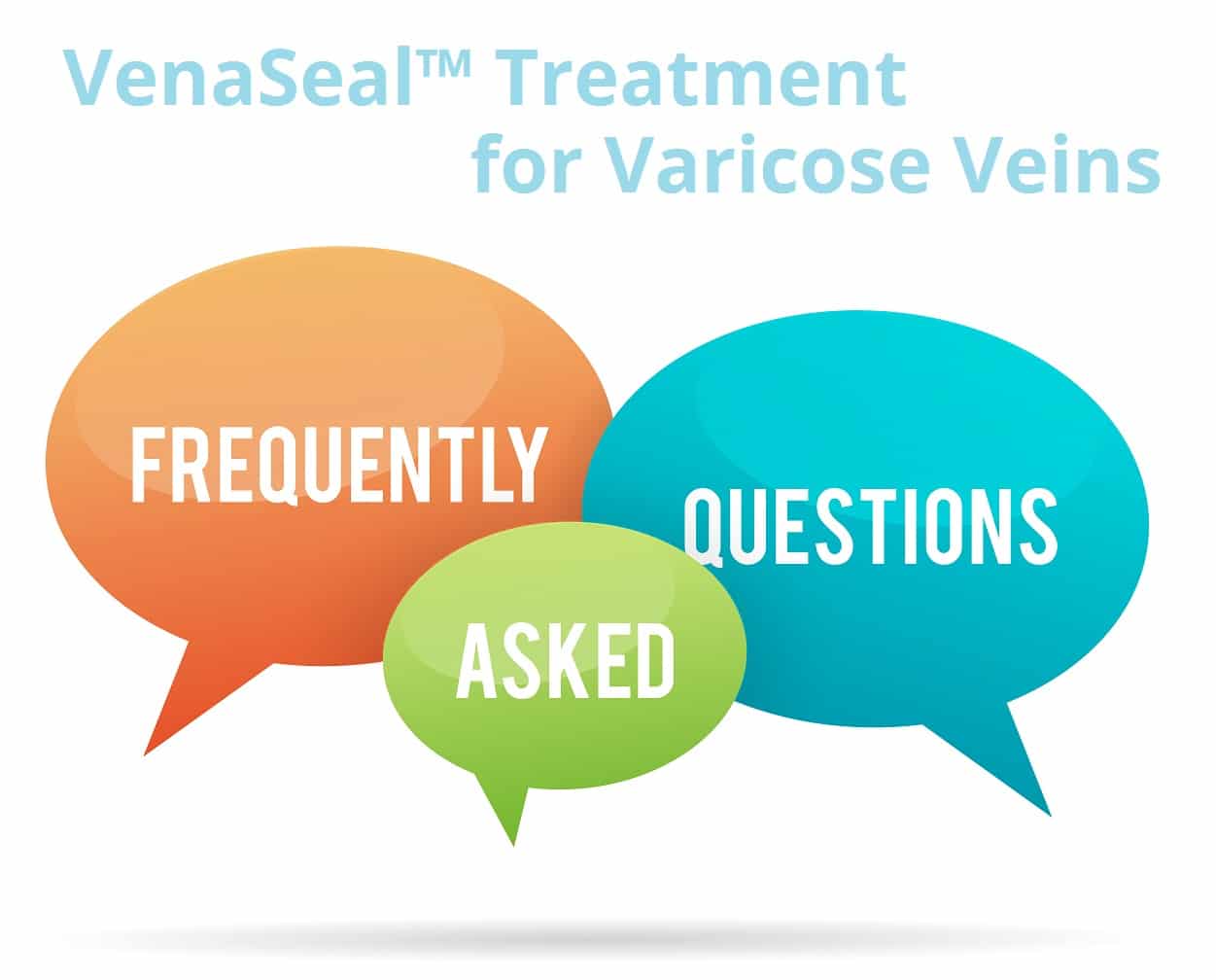What is the VenaSeal™ Treatment?
The VenaSeal closure system is a non-thermal, non-tumescent, non-sclerosant procedure approved for use in the U.S. that uses a specially formulated medical adhesive that closes the diseased vein. The VenaSeal treatment addresses symptomatic venous reflux disease in the lower extremity superficial venous system, often the underlying cause of painful varicose veins.
Following are the most common patient questions we are frequently asked about the VenaSeal treatment.
1. How does the VenaSeal treatment work?
During the procedure, your vein doctor fills a syringe with the medical adhesive, which is inserted into the VenaSeal treatment’s dispensing gun that is attached to a catheter. The catheter is advanced into the diseased vein under ultrasound guidance. The catheter is placed in specific areas along the diseased vein and the physician conducts a series of trigger pulls to deliver the medical adhesive. Compression is applied to the leg during the procedure.
2. When will my symptoms improve?
Symptoms are caused by the diseased superficial vein. Thus, symptoms may improve as soon as the diseased vein is closed.
3. When can I return to normal activity?
The VenaSeal procedure is designed to reduce recovery time. Many patients return to normal activity immediately after the procedure. Your doctor can help you determine when you can return to normal activity.
4. Is the VenaSeal treatment painful?
Most patients feel little, if any, pain during the outpatient procedure.
5. Is there bruising after the VenaSeal treatment?
Most patients report little-to-no bruising after the VenaSeal treatment.
6. What happens to the VenaSeal adhesive?
Only a very small amount of VenaSeal adhesive is used to close the vein. Your body will naturally absorb the adhesive over time.
7. What happens to the treated vein left behind in the leg? Don’t I need it?
Faulty valves interfere with the normal return of blood through the venous system. Closing these diseased veins helps to re-route the blood through nearby veins, improving circulation and relieving most symptoms. The adhesive was designed to remain permanently in the GSV and is eventually encapsulated by chronic fibrotic growth for vein closure.
8. How does VenaSeal differ from thermal energy procedures?
The VenaSeal treatment uses an adhesive to close the superficial vein. Thermal energy procedures use heat to close the vein. The intense heat requires a large volume of numbing medicine, which is injected through many needle sticks. The injections may cause pain and bruising after the procedure.
9. Is there clinical data to support the use of the VenaSeal closure system?
The VenaSeal treatment has been shown to be effective in three clinical studies, with demonstrated safety and high closure rates.
- The VeClose pivotal study demonstrates safety and efficacy of the VenaSeal treatment with closure rates of 94.3 percent at 24 months.
- Results from the European Sapheon Closure System Observational ProspectivE (eSCOPE) study published in the Journal of Vascular Surgery demonstrate a cumulative closure rate of 88.5 percent and improvement in quality of life scores at 36 months.
- Closure rates in the Feasibility Study were 94.7 percent at 36 months, respectively.
10. Is the VenaSeal treatment covered by insurance?
As with any procedure, insurance coverage may vary. Those interested in the VenaSeal treatment should contact their insurance provider for more information.
Schedule Your Appointment for the VenaSeal Treatment of Varicose Veins
Precision VIR is a recognized leader in the Dallas-Fort Worth area for treatment of varicose veins, venous insufficiency and other venous-related diseases. If you are suffering from leg discomfort, swelling, heaviness, or unsightly veins, the doctors and staff at Precision VIR can help. To see if you are a candidate for VenaSeal treatment or another symptom-relieving treatment, contact Precision VIR for a consultation at 214-382-3200 or complete the form below.
Precision VIR serves the DFW area including Dallas, Fort Worth, Carrollton, Richardson, Garland, Mesquite, Highland Park, University Park, Park Cities, Plano, Frisco, Allen, McKinney, Arlington, Irving, Grand Prairie, Flower Mound, Denton, Lewisville and all of North Texas.
This information is not a substitute for professional medical advice. Prior to starting any new treatment or questions regarding a medical condition, always seek the advice of your doctor or other qualified health provider.

